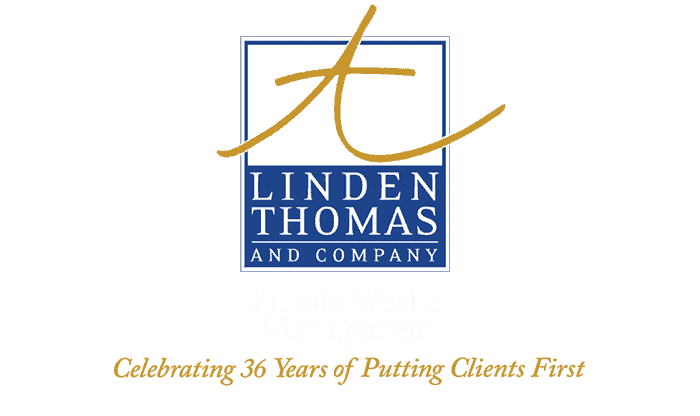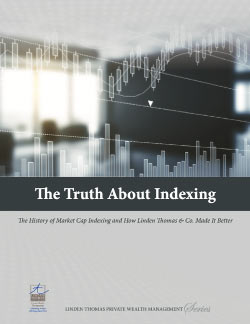Earnings-Focused Institutional Equity Index - Earnings Quality, Ownership & Cost Matter!
Our research team at Linden Thomas & Company found three flaws inherent in traditional market-cap index funds that, if enhanced, could provide better results:
Flaw #1: Cap Weighted
Companies within the index are held due to their market capitalization or size. They are not replaced until they drop below the cap weight, which means the value of the stock has to drop significantly before it is taken out of the index. By the time that happens, unfortunately, investors have already suffered the negative impact.
Flaw #2: Ownership
Index funds are pooled with other investors having various needs, risks, and behaviors. When markets go down, small investors tend to pull out. This behavior, known as herding, forces fund managers to sell, impacting the fund with downward pricing, cost, taxes, and delays in recovery.
Flaw #3: Cost
Advisors often promote the low expense ratios of Index funds and ETFs; but what they don’t openly disclose is trading costs, spreads on trades, and pass-through taxes. While these costs are often very hard to uncover, they can all have significant impact on results.
Indexing Made Better
Understanding that investor results were impacted by the three flaws of index funds listed above, the team at Linden Thomas & Company set out to build a more efficient index for our affluent investors. This meant moving from a cap-weighted pooled index to an earnings quality, institutional index.
Enhancement #1: Earnings Quality
Our Linden Thomas & Company indexes apply an earnings quality screen, a vast improvement over the traditional selection process. The screening enables us to identify the companies that have the best earnings quality. When a selected company no longer meets our earnings standards, it is replaced with one that does.
Enhancement #2: Investor Ownership
Each Linden Thomas & Company index gives our clients direct ownership of the holdings or stocks. This takes eliminates the negative impacts of small investor herding commonly found in pooled funds and ETFs. It also gives each client total transparency of holdings and the control to take advantage of tax-loss harvesting and gifting.
Enhancement #3: Cost
Since each stock is held directly by each of our clients, there is not a continuous flow of investors moving in and out of a pooled fund. In addition, with Linden Thomas & Company, investors avoid the high transactional fees that are often not disclosed in index mutual funds.
7 Benefits to Linden Thomas & Company Institutional Index Portfolios
Earnings-Focused Institutional Index portfolios give affluent investors advantages over traditional market-cap index funds. Earnings quality, ownership, and cost do matter.
- Indexing with an active earnings overlay
- Direct ownership of equities
- Earnings quality
- Tax-loss harvesting
- Gifting control of securities
- Controlled cost
- Total transparency and investor control
Institutional Active Equity Management
Much like the Linden Thomas & Company institutional indexes, we also offer private active institutional equity strategies. Our active equity strategies focus on five key factors when building a long-term equity portfolio. For clients that don’t want to put their entire investment into our Institutional Equity indexes, our actively managed equities can help complement their portfolios with:
- Active management
- Earnings monitoring
- Transparency of portfolio holdings
- Investor ownership and control of holdings
- No trading costs

